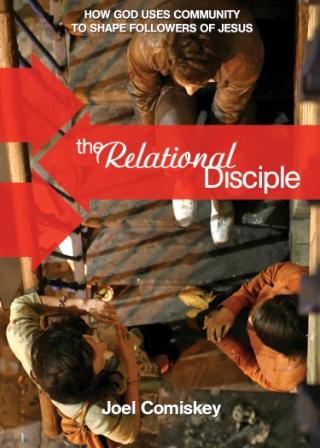Cell Basics
By Joel Comiskey
Summer 2009
I’ve been thinking and writing a lot lately about how God uses community to shape followers of Jesus. That’s the theme of my book The Relational Disciple, which is set to see daylight in October 2009.
In Relational Disciple, I contrast the way we do discipleship in the west (individualistic approach) with the way Jesus discipled people (though accountability relationships).

Anonymity in the Church
While growing as a believer I attended a large, well-known church in the southern California area. One of the attractive features of this church was anonymity. The church’s philosophy was to make it easy for people to come, leave, give, or not to give. People flocked to the church for the pastoral teaching, but everything depended on whether the individual attendee was able to personally apply the teaching. Thankfully, God gave me the grace to apply the teaching and follow Jesus. Many weren’t so fortunate and fell away. Today, many churches use the same philosophy of anonymity to grow their churches.
Christ’s Way of Discipleship
Jesus discipled people differently. Take the first twelve disciples of Christ. They lived, walked, and ate with Jesus for three full years. Jesus taught them through parables and real-life object lessons–not primarily in the large group setting. The early church followed the same example. They applied the apostles teaching from house to house. And when they could no longer hear the apostle’s teaching openly, they only met from house to house.
The private, individualized form of discipleship practiced in the west is now having disastrous consequences (North America, Europe, Australia). All three continents are leading the world in negative church growth.
Christ’s plan was discipleship through accountability at a smaller group level. Look at the one-another’s of Scripture, the example of the Trinity, and the witness of church history–starting with Jesus and the twelve. In my upcoming book I will talk about how discipleship must start at the nuclear family level (if relational discipleship doesn’t happen there, everything else will implode). And of course I highlight the cell, the local church, and the church scattered in mission.
Preparing Relational Disciples
I believe the essence of cell ministry is making disciples who make disciples. The cell atmosphere is an incredible way to prepare future disciple makers. Cell churches develop equipping tracks to guide the process.
But are we preparing disciples who know how to practice the one-anothers of Scripture? Is it possible to raise up a cell leader who is relationally dysfunctional? I’ve been meditating on the need for future leaders to grow in their relational skills. The phrase “one another” appears 100 times in the New Testament. The majority of the occurrences of the phrase “one another” have to do with relationships between Christians and how to cultivate those relationships. And the writers of the New Testament exhorted believers to grow deeper and deeper in living out Scriptural truth through accountability with one another.
